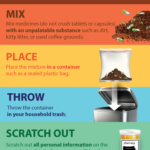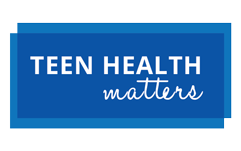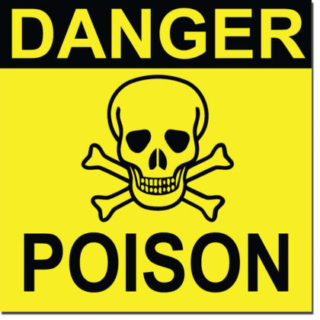Each year, children, teenagers, and adults alike are accidentally poisoned. Drug-related poisonings account for 70,000 hospital visits, and result in 35,000 deaths a year (Poison Help 2017). Poisons include, but are not limited to, prescription medicines, painkillers, cleaning substances, cosmetics, and foreign toys or objects. In honor of National Poison Prevention Week, here is a quick overview on how to prevent poisonings and dispose of prescriptions, as well as steps on what to do if someone is suspected of poisoning.
How to prevent poisonings:
- Never share prescription medicines. Make sure to read all directions when taking prescriptions and never take a larger dose than instructed.
- When finished a prescription, make sure to dispose of the prescription properly at your local drop off center. Check out http://www.hcdrugfree.org/drug-take-back-day-1 for information on the next Drug Take Back Day in Howard County.
- Store prescription meds out of reach from children.
- When on a prescription, be aware of substances, like alcohol, or other prescriptions you should stay away from. If you have questions, call your doctor or pharmacist.
How to dispose of prescriptions:
- Do NOT flush your prescriptions unless specifically instructed to do so
- Drop off prescriptions at local controlled substance disposal centers. These include many police stations, pharmacies, and hospitals. To find yours, check out the link listed in the resources below.
- If a local drop center is not accessible, follow these st
 eps to dispose of prescriptions in household trash:
eps to dispose of prescriptions in household trash:
- Combine prescriptions with an undesirable material in order to deter others. Some examples of this material include dirt, kitty litter, or coffee grounds. Do not crush the pills or capsules.
- Put mixture in a sealed plastic bag and throw away in trash.
- Make sure to remove any personal information from containers.
What to do if someone is poisoned:
- Call the Poison Help Line at 1-800-222-1222. This number will direct you to your local emergency poison center. If the person is not breathing, call 911 immediately.
- Try to remain calm and locate the suspected poison. Be prepared to tell the operator details on the symptoms of the person, and the operator will let you know what to do next.
- If the poison was inhaled, expose the person to fresh air. If the poison is on the skin, remove any clothing that touched poison and wash skin under running water for 15 to 20 minutes. If the poison is in the eyes, flush eyes with running water for 15 to 20 minutes.
Poison Help Line: 1-800-222-1222
HC Drug Free: http://www.hcdrugfree.org/
Find Local Disposal Centers: https://apps.deadiversion.usdoj.gov/pubdispsearch/spring/main?execution=e1s1
[social_link type=”twitter” url=”https://twitter.com/teenhlthmatters” target=”” ][social_link type=”facebook_account” url=”https://www.facebook.com/TeenHealthMatters/” target=”” ] [social_link type=”instagram_account” url=”https://www.instagram.com/teenhealthmatters_/” target=”” ]

